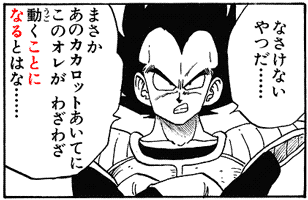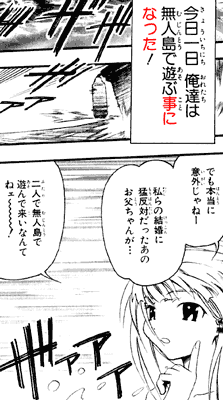In Japanese, ~koto ni naru ~ことになる (also spelled ~事になる, koto こと, plus ni に adverbial copula, plus naru なる) means that things will turn out ("become," ~ni naru ~になる) in a way when the relative clause qualifying koto is in nonpast form (future tense), or that it was decided that things have turned in a way in the past (e.g. we'll pretend that's how it went) when the relative clause is in past form.
- Tarou ga shinu
太郎が死ぬ
Tarou will die. (in the future.) - {{Tarou ga shinu} koto ni} naru
太郎が死ぬことになる
Things will turn out so that {{Tarou will die (in the future)}}. (meaning things haven't turned so yet, so we can prevent this hypothetical future where Tarou dies.) - {{Tarou ga shinu} koto ni} natta
太郎が死ぬことになった
Things have turned out so that {{Tarou will die (in the future)}}. (Tarou hasn't died it, but it's been settled that he will.) - Tarou ga shinda
太郎が死んだ
Tarou died. (in the past.) - {{Tarou ga shinda} koto ni} naru
太郎が死んだことになる
Things will turn out so (in the future) that {{Tarou will have died (in the past)}}. (we assume Tarou is currently alive, but if what you say is true, then the facts would be that he has died already.) - {{Tarou ga shinda} koto ni} natta
太郎が死んだことになった
Things have turned out so (in the past) that {{Tarou died (in the past)}}. (it's been decided that Tarou died, i.e. that might not be what actually happened, but that's the story that we'll be telling everybody.)
Grammar
See the article about naru なる for details on grammar. This article is mainly for examples.
The phrase ~ni naru ~になる, "to become," is used instead of the da だ copula, "to be." in order to shift no-adjective (nouns) and na-adjective predicates to future tense. The word koto こと is syntactically a noun, so it takes da/ni naru like any other noun.
- sou iu koto da
そういうことだ
That's how it is. - sou iu koto ni naru
そういうことになる
That's how it will be.
That's how it will turn out.
The phrase ~koto ni suru ~ことにする (a lexical causative) forms an ergative verb pair with ~koto ni naru ~ことになる (unaccusative).
Examples
- Context: Suzuki Iruma 鈴木入間 explains the story so far.
- {akuma Sariban-san no "mago" to natta} boku wa, {{kare ga rijichou wo tsutomeru} akuma no gakkou ni kayou} koto ni natta no desu ga...
悪魔サリバンさんの「孫」となった僕は彼が理事長を務める悪魔の学校に通うことになったのですが・・・
As for me, [who] {became the grandchild of the demon Sullivan}, things turned out so that {[I] will go to the demon school [where] {he works as principal}}, but...- tsutomeru - to serve a role, to work as.
- kayou - to commute to, to go and come from (a school, workplace, etc.) every day.
- 「」 - quotation marks.
- {yoku} nemureta?
よく眠れた?
Did [you] sleep {well}? - u' hai...
うっ はい!
Uh, yes!
- Context: an over-protective father has a sudden and suspicious change of heart regarding his daughter's relationship with the male main character, who narrates:
- {kyou ichinichi ore-tachi wa mujintou de asobu} koto ni natta!
今日一日 俺達は無人島で遊ぶ事になった!
Things ended up so that {today, for the whole day, we will have fun on a deserted island}. - za za za zaaa
ザザザザァァ
*sound of water splashing under the boat* - demo {hontou ni} igai janee
でも本当に以外じゃねー
But it's {really} unexpected, isn't it? - {watashi-ra no kekkon ni mouhantai datta} ano otouchan ga...
私らの結婚に猛反対だったあのお父ちゃんが・・・
That father [who] {was vehemently against our marriage}...- ano otouchan - literally "that father," in this sentence, means "my father," but in respect to how he was in the past, at "that" time.
- futari de mujintou de asonde-koi nante nee~~~!
二人で無人島で遊んで来いなんてねェ~~~!
[told us] "go play only you two alone on a deserted island," huh~~~!- The first de で particle here limits number: futari de, "only two people," "only us two," "us two alone."
- The second de で particle marks the location: mujintou de, "on a deserted island."
- asonde-koi - imperative form (meireikei 命令形) of asonde-kuru 遊んで来る, "to go play [there] and come back [here]."
- The father told them go to have fun on a deserted island, thus "things became such that" they'll go have fun on a deserted island.
- Context: Vegeta sent his underling to fight Kakarot. His underling lost. Vegeta is perplexed.
- nasakenai yatsu da
なさけないやつだ・・・・・・
[What a] pathetic guy.- Referring to a guy who just lost to Kakarot.
- masaka {ano Kakarotto aite ni kono ore ga wazawaza ugoku} koto ni naru towa na......
まさかあのカカロットあいてにこのオレがわざわざ動くことになるとはな・・・・・・
[It's unbelievable that] it ended up in such way that {against that Kakarot, I have to [fight]}.- In other words: Vegeta didn't expect he'd have "to move," ugoku 動く. He expected his underling to handle it. So he wouldn't have to act, he wouldn't have to fight Kakarot.
- However, since his underling lost, the "situation became in such way that" it's necessary for him to make a move.
- That's what koto ni naru is expressing: the situation ended up that way.



No comments: